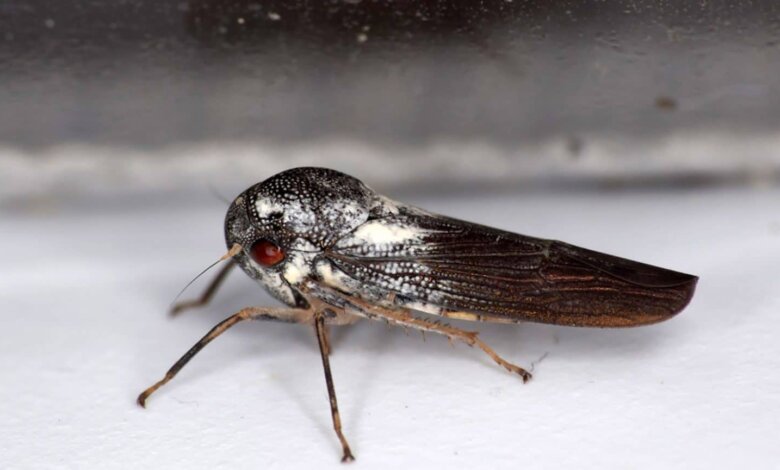New Specie of Rare Leafhopper Discovered in Uganda

A British scientist has identified a new species of insect that belongs to a group of insects that was last seen in 1969.
During field work with students in the rainforest of the Kibale National Park in western Uganda, Dr. Alvin Helden of Anglia Ruskin University (ARU) discovered the new species of leafhopper, which he has named Phlogis kibalensis, and the discovery has been published in the journal Zootaxa.
The new species, which has a metallic sheen, a pitted body, and, like most leafhoppers, unusually-shaped male reproductive organs—in this case, half leaf-shaped—belongs to the Phlogis genus.
The last time a leafhopper from this rare genus was seen was in the Central African Republic in 1969, according to the latest discovery. Leafhoppers are related to cicadas, but they are much smaller, with the male of the newly discovered Phlogis kibalensis species being only 6.5mm in length.
Leafhoppers are preyed on by invertebrates such as spiders, beetles, and parasitic wasps, as well as birds, who feed on plant sap taken directly from the phloem.
ICYMI Read Also: New Warty Frog Specie Discovered in Madagascar, Africa
Dr. Helden, a member of the Applied Ecology Research Group at Anglia Ruskin University (ARU), said:
“To find this new species is a once-in-a-lifetime achievement, particularly as it’s closest relative was last found in a different country over 50 years ago. I knew it was something very special as soon as I spotted it.”
“Leafhoppers of this genus, and the wider tribe, are very unusual in appearance, and are rarely found. In fact, they are so incredibly rare that their biology remains almost completely unknown, and we know almost nothing about Phlogis kibalensis, the new species I found, including what plants it feeds on or its role in the local ecosystem.”
“There is so much still to find out, not just about this species but so many others, including the many species that are still waiting to be discovered. It is incredibly sad to think that some species will become extinct before we are even aware of their existence.”
“There are some wonderful places, like the Kibale National Park in Uganda, where wildlife will survive, but outside national parks and reserves, the amount of rainforest that has been cleared in the tropics is devastating. Rare species could be living anywhere, but deforestation means it is inevitable that we will be losing species before we have discovered them.”
Since 2015, Dr. Helden has been leading student field trips to Kibale National Park, which is located near Uganda’s border with the Democratic Republic of Congo.
He has been documenting the insects found in the park as part of his work, and has created picture guides for Kibale’s butterflies, hawkmoths, and tortoise beetles.
Source: Phys.org
Abeeb Lekan Sodiq is a Managing Editor & Writer at theafricandream.net. He’s as well a Graphics Designer and also known as Arakunrin Lekan.





